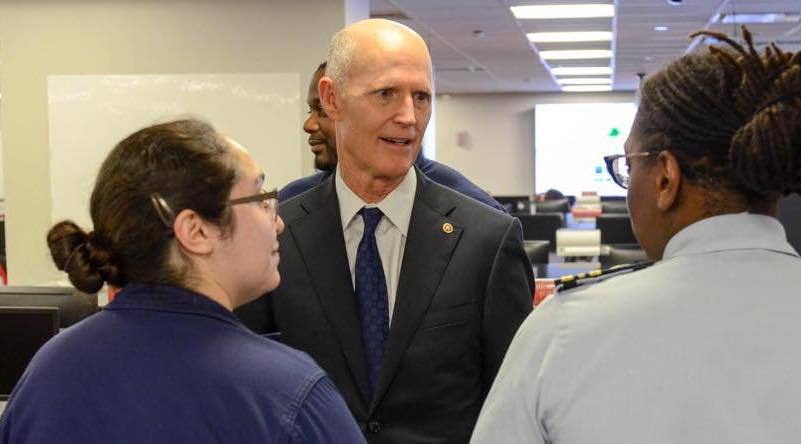U.S. Sen. Rick Scott | Facebook
U.S. Sen. Rick Scott | Facebook
Florida could be forced to surrender its constitutionally derived right to set its own election practices under the For the People Act of 2021, currently awaiting action in the U.S. Senate after the measure was approved along partisan lines in the House in early March, critics argue.
The measure, H.R. 1, codifies many of the election practices adopted during the COVID-19 pandemic, including a dramatic increase in the use of mail-in ballots with reduced voter verification -- a move that even progressive news outlets reported could heighten the opportunities for election fraud.
Widespread voter fraud was almost non-existent during the 2020 elections, the Associated Press and other news outlets have reported.
Sen. Rick Scott (R-Fla.) called H.R. 1, which would override state law that does not allow for counting mail-in ballots that arrive after Election Day, "the big lie."
“The Democrats have a huge problem on their hands,” Scott said in a video presentation. “They cannot win the arguments over specific election reforms designed to eliminate fraud. Unfortunately for the Democrats, the public hates fraudulent elections, the public demands fairness and total accuracy.”
The proposed federal law would allow for the counting of ballots received up to 10 days after Election Day, the Brennan Center reports. According to the National Conference of State Legislatures, Florida does not accept postmarked ballots after election day. By state law, they must arrive by 7 p.m. on Election Day in order to be counted.
Other federal directives include: Requiring the state to allow at least two weeks of early voting; requiring the state to allow ballot harvesting, which permits political operatives and others to collect voters' ballots and turn them in en masse to polling stations; and require the state to provide voters with same-day registration and allow them to change their names and addresses on the rolls at the polling place on Election Day.
In March 2020, the ProPublica cited the findings of a 2005 bipartisan commission on elections led by former President Jimmy Carter and former Secretary of State James Baker III, that concluded mail-in ballots “remain the largest source of potential voter fraud." ProPublica reported that “ballot harvesting scandals, in which political operatives tamper with absentee ballots that voters have entrusted to them, have marred recent elections in North Carolina and Texas.”
The bill would, in effect, snuff out viable challenges to the ruling party in Washington, according to Hans von Spakovsky, manager of the Heritage Foundation's election law reform initiative.
“There's a reason the framers of the Constitution gave the authority to the states to run elections,” von Spakovsky said in a recent interview at Heritage. “They didn't want the people who are in control in Washington, say one political party, which is apparently the case right now, changing the rules nationally to ensure that they remain in office.”
Congress returns to session this week for two weeks and then returns in May for the two weeks leading up to a Memorial Day break. Deadlocked at 50-50, the Senate will almost certainly need to revoke the filibuster (the 60-vote requirement to end debate on legislation), at least temporarily, to send H.R. 1 to President Joe Biden.



 Alerts Sign-up
Alerts Sign-up